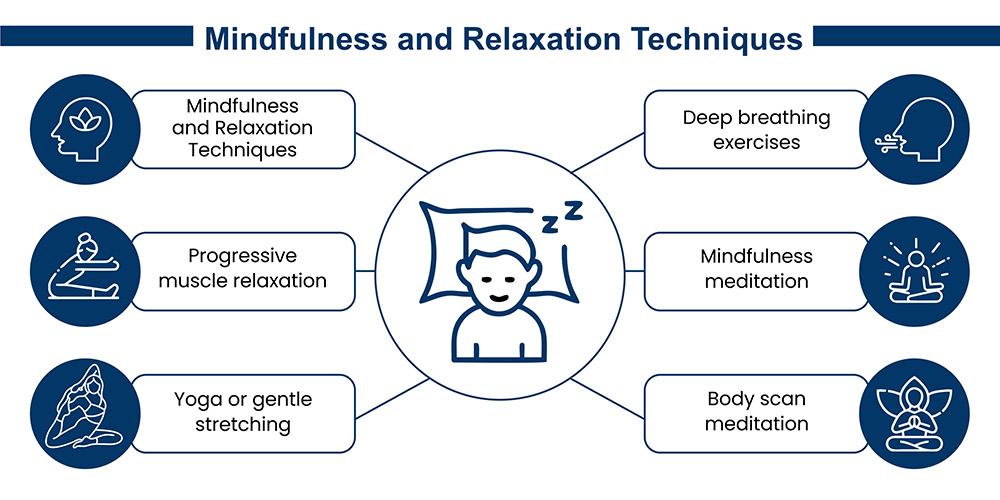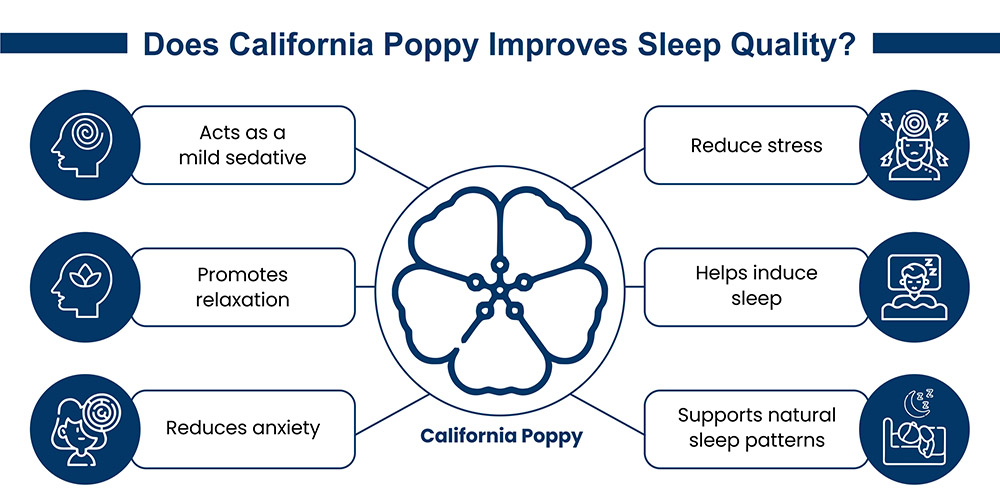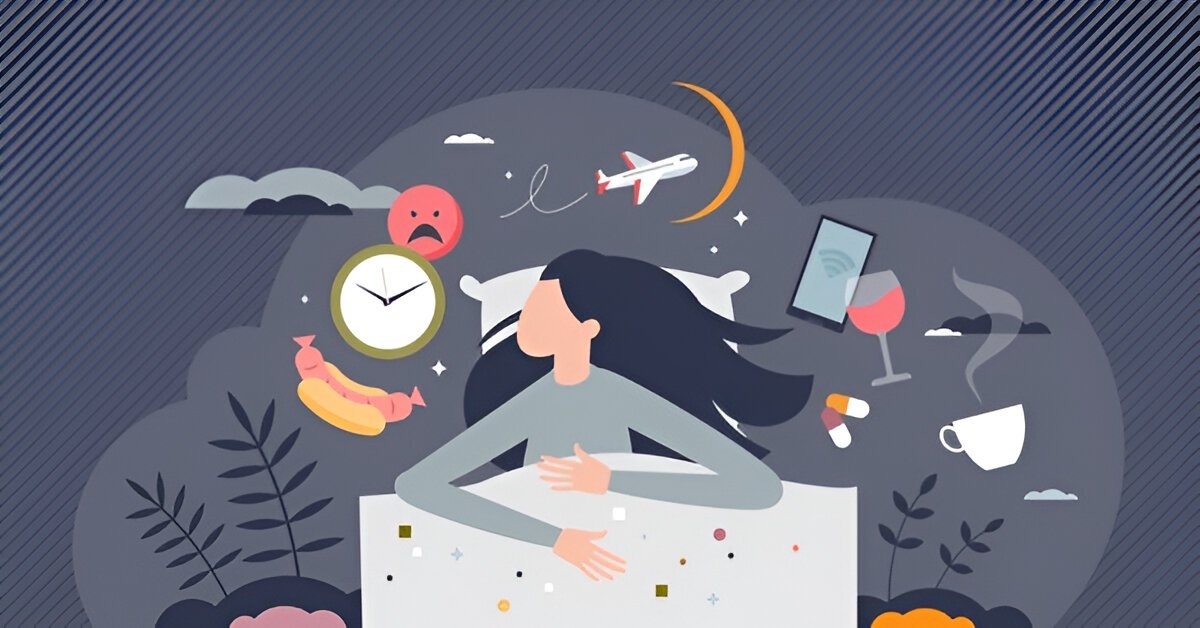Do you find it hard to get good sleep? Well, you are not alone in this. Day and night, countless people suffer from sleepless nights, restlessly tossing over endless solutions that do not involve pharmacological medications. Fortunately, there are plenty of natural sleep aids to promote relaxation and help ensure improved sleep quality. These natural insomnia remedies can be soothing herbal teas or essential oils that are alternatives to over-the-counter options.
This post will cover the best sleep aids, benefits, and tips to help you sleep better. Whether you are looking for a quick fix or a long-term solution, you will find more than enough options to help you drift off peacefully and wake up refreshed. Let's take a trip into the world of natural sleep aids and see what's just right for you!
Natural Sleep Aids
Do you know the pain of being unable to sleep after a long day? Falling asleep is challenging because of stress, mind chatter, or sometimes even environmental factors. While sleeping medications might help in the short term, they have terrible side effects. The side effects make many people opt for other alternatives, such as natural sleep remedies, which are used to promote sleep. In the article, we will discuss some of the best natural sleep aids that help for better sleep.

1. Herbal Teas
Chamomile Tea
Chamomile's calming effect is very popular. A cup of chamomile tea can calm a patient before sleep, helping to minimize anxiety and reduce stress.
Lavender Tea
Lavender has become extremely popular due to its calming smell. However, the consumption of lavender tea may also enhance sleep quality. Calming properties may reduce restlessness.
2. Essential Oils
Lavender Oil
Use a diffuser with lavender oil or spray it on your pillow for a calming ambiance. The scent of lavender oil has been linked to proper sleeping hours and anxiety reduction.
Bergamot Oil
Bergamot oil has a lemon-like citrus scent. Its use is believed to lower stress levels. Applying it to the bedroom through a diffuser before sleeping creates a relaxing environment conducive to sleep.
3. Melatonin Supplements
Melatonin is a hormone that regulates sleep-wake cycles, and melatonin supplements can help the body know when to sleep, especially for people with different sleeping times.
4. Magnesium
Magnesium is an important mineral for relaxing and controlling muscle functions. Including magnesium-rich foods like almonds and spinach or a magnesium supplement can help improve sleep quality.
5. Valerian Root
Valerian root has been thought to be an herbal and natural remedy for deep sleep and anxiety disorders. It is available in tea or supplement form and helps you sleep easier and sooner.
6. Mindfulness and Relaxation Techniques
Mindfulness, meditation, or deep-breathing exercises can help reduce stress and induce relaxation. These activities can quiet the busy mind, making it easier to drift off to sleep.
7. Sleep Hygiene
In addition to natural aids, a good sleep hygiene approach might make all the difference. First, keep a regular schedule with a calm, relaxing bedtime routine. Ensure that your sleep environment is dark and cool.
8. California Poppy
It's a cousin of the opium poppy but a different species of flower. Traditionally, the california poppy has been used as a sedative. Researchers have found that it increases the amount of GABA, the relaxation-enhancing chemical. However, very little research exists on how well california poppy extracts work. There likely isn't a toxic dose, and the drug is probably safe for short-term use. Possible side effects include stomach problems.
9. L-theanine
L-theanine, mainly extracted from green tea, promotes relaxation or a calming effect by raising neurotransmitters like GABA and serotonin levels. These can reduce the feeling of anxiety and stress without causing drowsiness. They make it easier to unwind before sleep and may enhance sleep quality by generating deeper, restorative sleep.
10. Glycine
Glycine helps control sleep by lowering body temperature and is essential for initiating sleep. Other studies have shown that glycine can increase the speed at which you fall asleep and the duration spent in deep sleep without causing grogginess upon waking, unlike some sleep aids.
11. Kava
This native Pacific Islander plant is used for anxiety. Studies indicate kava is also beneficial for sleep. It may help with insomnia related to stress. However, kava supplements have been associated with a risk of severe liver damage. Consult your doctor if you are considering taking kava. Supplements containing only the root, not the stem or the leaves, might pose a more negligible risk.

Are Natural Sleep Aids Safe?
Many individuals also seek natural sleep aids to enhance their sleep without the risk of side effects attributed to prescribed medicine. Though safe, most of these remedies should be approached cautiously.
1. Common Natural Sleep Aids
Common natural sleep aids are herbal teas- one example would be chamomile and the other valerian root, supplements like melatonin, and amino acids, including L-theanine and glycine. Among the most commonly used remedies, most have a long safety record; their effectiveness and tolerance vary across individuals.
2. Potential Side Effects
Although natural, some sleep aids can still carry some side effects. For instance, if taken incorrectly, melatonin could make you dizzy or drowsy during the day. Valerian root can sometimes cause headaches or digestive upset in some users. Monitor how your body reacts to any new remedy.
3. Interactions with Medications
This natural sleep aid should be administered with caution because it may interact with certain prescription drugs, such as blood thinners, antidepressants, or other types of sedatives. Always get a doctor's check-up before mixing these natural sleep aids with prescription medications.
4. Individual Considerations
Everyone's body is different, so what works for one person might not work for another. Age, other health issues, and general lifestyle can all affect safety and efficacy.
5. Quality Matters
Choose a high-quality product from a respectable source. Supplements may not contain the necessary ingredients, and some may contain contaminants.
What if the Natural Remedies Don't Work?
If sleep aids in nature aren't alleviating you as you had hoped, then it is time to reassess your situation and explore other avenues. Here's what you can do:
1. Reevaluate Your Routine
Examine your sleep hygiene. A regular sleep schedule, a relaxing activity before bed, and a comfortable sleeping environment can make a difference in sleep quality.
2. Identify Underlying Issues
Sometimes, chronic sleep disorders may indicate underlying causes such as anxiety and depression or even underlying medical conditions. In such a case, it may be necessary to seek medical consultations to solve the root cause.
3. Explore Different Remedies
Not all natural aids work for everyone. If one type is not feasible, try another. For example, if herbal teas are not working, you may try magnesium or melatonin supplements.
4. Consider Professional Help
However, sleep problems persist and may be best helped by specific strategies and treatment from a sleep specialist or therapist. Cognitive-behavioral therapy for insomnia (CBT-I) is especially effective for many.
5. Avoid Overreliance on Aids
It can be treated with natural remedies, but relying solely on those and neglected lifestyle factors does not help create a better future. Instead, balance your habits with a healthy life and professional intervention when extreme necessity arrives.
Final Thoughts
Finding an effective solution for better sleep is a journey. Some natural insomnia remedies, such as herbal teas or supplements, are cited as follows: Remember that each body reacts differently. If the above suggestions do not work for you, reassess your routine, try to address the underlying reasons, and consult a professional.
Natural sleep aids can indeed work, but if you are worried about using them or taking other types of medication, it is wise to see a doctor. Patience and the right approach may help you find restful sleep and waking up refreshed.













